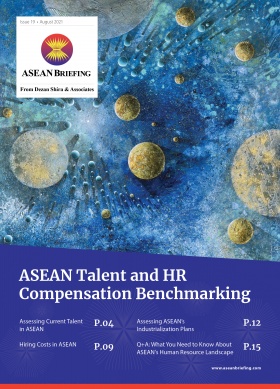Vietnam’s Border Reopening: Implications for Businesses
Vietnam officially reopened its borders to all international visitors on March 15, 2022, after two years of being closed. Visitors are still required to have a negative COVID-19 PCR test before arrival. Further, Vietnam no longer differentiates between unvaccinated and vaccinated travelers, and all travelers must adhere to the same entry requirements.
Vietnam took decisive action during the early periods of the pandemic and closed its international borders as early as March 25, 2020. To ensure the movement of international visitors, Vietnam designed a specific work visa to allow professionals and experts to enter the country.Travelers must follow local guidelines for COVID-19 such as wearing a facemask in public and disinfecting hands.
What are the requirements to enter Vietnam?
COVID-19 testing
Travelers entering Vietnam must show proof of a negative COVID-19 PCR test, taken at least 72 hours before their scheduled departure, or a negative rapid flow antigen (lateral flow) test, taken within 24 hours before arrival. Children 2 years or under are exempt from testing. The results for either type of test must be certified by an accredited provider.
Passengers who exhibit symptoms of COVID-19 such as fever, sore throats, breathing difficulty, loss of taste and smell, body aches, etc, must notify officials at the border. Once through the border, travelers are expected to self-monitor their health for 10 days of arrival and must notify the nearest medical facility if they present any COVID-19 symptoms.
Further, travelers must use the PC-COVID app and fill in their health declaration form before departure. The application can be found on the Google Playstore and the Apple App Store.
Obtaining an e-visa
Vietnam has reopened its e-visa portal and so citizens from over 80 countries can now apply for a tourist visa. A single-entry e-visa is valid for a maximum of 30 days and the fee is US$25.
The following documents are required for e-visa applications:
- 4×6 passport photo in .jpg format with a white background and no glasses;
- One photo of passport data page in .jpg format;
- The passport must be valid for at least 6 months from the date of entry; and
- Temporary address in Vietnam and date of entry and exit.
The E-Visa will be sent to the recipient’s email account within three working days.
Visa exemptions
The government has issued visa exemptions for citizens of 13 countries:
- Belarus;
- Denmark;
- Finland;
- France;
- Germany;
- Italy;
- Japan;
- Norway;
- Russia;
- South Korea;
- Spain;
- Sweden; and
- The United Kingdom.
Citizens of these countries can stay in Vietnam for up to 15 days. Further, business visas will no longer require approval from local committees, instead, all visas will be processed through the ministry of public security and immigration.
Medical insurance
Travelers must purchase medical/travel insurance before entering Vietnam. The insurance must cover COVID-19 medical treatment of up to US$10,000.
Health declaration and Covid-19 related services are all available on Vietnam’s PC-Covid app and medical declarations must be completed on tokhaiyte before scheduled departure (vietnamairlines, 2022).
Revitalizing the tourism industry
Vietnam’s border closures helped stall the outbreak of COVID-19 but the direct impact on the country’s tourism industry was severe with the number of international visitors dropping to 3.7 million in 2020 from 18 million in 2019. Resulting in a reduction in the sector’s contribution to GDP from 9.2 percent in 2019 to 3.58 percent in 2020.
By 2021, Vietnam’s tourism industry began to show signs of improvement and the number of international tourists in December 2021 increased tourism increased by 14.2 percent compared to November.
Vietnam began piloting tourist programs in November 2021 by opening direct international flights from foreign countries to specific locations in the country, which included Phu Quoc, Quang Nam, and Khanh Hoa. The tourists could only travel within these chosen locations but could not venture any further.
Though there are still challenges in reinstating much of Vietnam’s tourism infrastructure, the Vietnam National Administration of Tourism has created multiple goals for 2022, including reaching 5 million foreign tourists and earning approximately US$17.57 billion from tourism services by the end of 2022.
Further Reading
- Opportunities for Foreign Investors in Vietnam’s Coffee Industry
- Increase in Social Insurance Rates for Foreign Employees in Vietnam
- Vietnam Amends Rules on Labeling Goods, in Effect from Feb.15, 2022
About Us
ASEAN Briefing is produced by Dezan Shira & Associates. The firm assists foreign investors throughout Asia and maintains offices throughout ASEAN, including in Singapore, Hanoi, Ho Chi Minh City, and Da Nang in Vietnam, Munich, and Esen in Germany, Boston, and Salt Lake City in the United States, Milan, Conegliano, and Udine in Italy, in addition to Jakarta, and Batam in Indonesia. We also have partner firms in Malaysia, Bangladesh, the Philippines, and Thailand as well as our practices in China and India. Please contact us at asia@dezshira.com or visit our website at www.dezshira.com.








